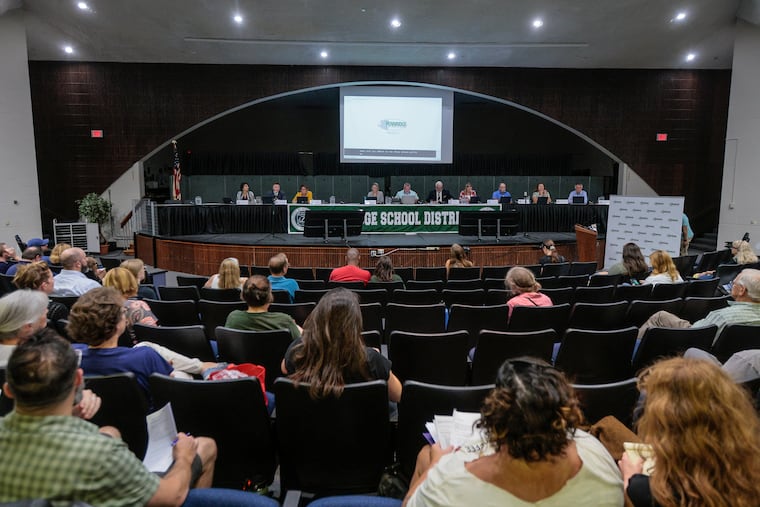Pennridge passes athletics policy based on ‘biological sex,’ the most recent vote limiting transgender students
The policy, passed unanimously by the school board Tuesday, follows a move by the district earlier this year requiring that students use group bathrooms based on sex, rather than gender identity.

The Pennridge School District has adopted a policy specifying that sports teams are divided by sex, barring transgender students from participating on teams aligned with their gender identities.
The policy, passed unanimously by the school board Tuesday, follows a move by the district earlier this year requiring that students use group bathrooms based on sex, rather than gender identity. The district defines sex as “the biological sex classification based upon chromosomal structure and anatomy at birth.”
“Tonight we become the first school district in all of Pennsylvania to protect both girls’ spaces and girls’ sports,” said Josh Hogan, a Republican running for school board. “That’s a powerful thing.”
The vote is the most recent by a Philadelphia-area school district that limits transgender students — backed by proponents as necessary to protect girls, but criticized as discriminatory toward LGBTQ youth.
Earlier this month, the Perkiomen Valley school board voted to prohibit transgender students from using bathrooms aligned with their gender identity — a move that followed uproar around a father’s assertion that his high school daughter was distressed by the possible presence of a boy in a girls’ bathroom. Instead, the board said, transgender students could use single-user bathrooms.
Also earlier this month, the Central Bucks school board voted to advance an athletics policy similar to Pennridge’s, approving it on a first read.
Advocates for LGBTQ students say the policies threaten to marginalize already vulnerable children, preventing transgender students from having the same access to facilities and sports as their peers. A federal appeals court in 2018 upheld the Boyertown Area School District’s policy allowing transgender students to use restrooms and locker rooms corresponding to their gender identity, rejecting the appeal of six students opposed to the policy.
In Pennridge, “you’ve created enough non-places for them that a trans or nonbinary kid can’t get through the school day without spending some part of it in a weird limbo state of belonging literally nowhere,” parent Stephanie Regina told the school board Tuesday.
Critics have also argued the policies’ proponents are focused on nonexistent problems; Regina accused the Pennridge board of creating “an easy political platform for your allies” ahead of the Nov. 7 school board elections rather than addressing issues like a shortage of substitute teachers and bus drivers. (On its Facebook page, the “Protect Pennridge” slate of GOP candidates said the policy would “protect privacy and fairness for girls in Pennridge.”)
“Obviously the nonbinary kid who wants to play a sport and has to pee now and then is a much bigger problem,” Regina said.
Supporters say they want to prevent issues before they arise. “We see it happening out in society right now, female athletes are being subjected to these situations where they have to compete against biological men,” and “facing repercussions for speaking out,” said Pennridge board member Joan Cullen. It’s “important to have it stated explicitly that they will be protected.”
The policy says the district “may provide reasonable accommodation for females to try out for teams designated for males, such as when the district does not sponsor a comparable girls’ team in that sport.” It does not have a similar caveat for males.
The policy also adds that if a “reasonable accommodation” is made, “locker room facilities must still be based on sex.”
Describing her childhood in Pennridge at a time before some girls’ sports were available, Leah Rash, a Democrat running for the school board, said some of her athletic experiences were frustrating: Running track with boys in middle school, and being “still not fast enough to beat the fastest boys.” Playing coed flag football and soccer, and getting injured.
Still, Rash said, “don’t pretend you’re doing this for girls’ sports.” Instead, as she described the fight women waged for “a place at the table,” Rash said the board was going to “now run another group of kids through the same things we had to go through.”